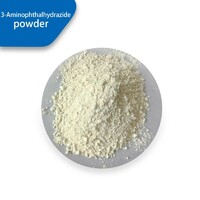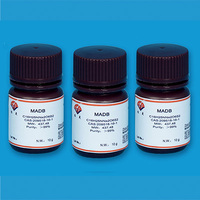Application of BICINE in Plant Enzyme Extraction
Product Quick Detail
- Place Of Origin
- China (Mainland)
- FOB Price
- USD $38.00 / Piece
- Minimum Order
- 10
- Packaging
- 500g/bottle
- Delivery
- 15 Days
Specifications
In the field of biotechnology, the extraction and purification of plant enzymes have always been a research hotspot. These enzymes have wide applications in various industries such as medicine, agriculture, and food. In the process of extracting plant enzymes, a key step is to choose the appropriate buffering agent. BICINE, as a widely used biological buffer, has shown particular advantages in plant enzyme extraction.
Characteristics of BICINE buffer
BICINE buffer has excellent buffering capacity and stability, which can maintain a constant ion strength over a wide pH range, providing a stable environment for the extraction of plant enzymes. In addition, BICINE has good water solubility and biocompatibility, and will not have a negative impact on enzyme activity and stability. These characteristics make BICINE an indispensable tool in plant enzyme extraction.
Application of BICINE in Plant Enzyme Extraction
1. Optimize extraction conditions. In the process of plant enzyme extraction, pH value is a crucial parameter. BICINE buffer can accurately adjust the pH value of the solution, ensuring that the enzyme is extracted in a good state. By adjusting the concentration and pH value of BICINE, extraction conditions can be optimized to improve enzyme activity and purity.
2. Protect enzyme activity. Plant enzymes are easily inactivated during the extraction process due to the influence of external environment. BICINE buffer can provide a stable ionic environment, reducing the interaction between enzymes and other substances in the solution, thereby protecting enzyme activity. In addition, BICINE can form hydrogen or ionic bonds with enzyme molecules, enhancing their stability.
3. Improve extraction efficiency. In plant enzyme extraction, extraction efficiency is an important indicator to measure the quality of extraction methods. BICINE buffer can facilitate the release of enzymes from plant tissues by adjusting the ionic strength and pH value of the solution. Meanwhile, BICINE can also form complexes with some impurities to reduce their interference and improve extraction efficiency.
4. Simplify subsequent processing. After the extraction of plant enzymes is completed, a series of subsequent treatments are required, such as filtration, centrifugation, dialysis, etc. BICINE buffer has good water solubility and biocompatibility, making these subsequent treatment processes more convenient. In addition, BICINE can be compatible with some commonly used ion exchange resins or chromatography columns for further purification.
Examples of BICINE buffer in plant enzyme extraction
Taking cellulase as an example, cellulase is an enzyme widely present in plant cell walls and has important industrial application value. During the extraction process of cellulase, the use of BICINE buffer can significantly improve the extraction efficiency and enzyme activity. Researchers found that under the same conditions, the cellulase activity and purity extracted using BICINE buffer were higher than those of other buffers. This result fully demonstrates the advantages of BICINE in plant enzyme extraction.
- Country: Afghanistan
- Business Type:
- Market:
- Founded Year:
- Address:
- Contact:Doris Yang












